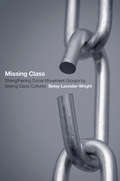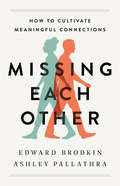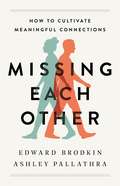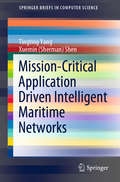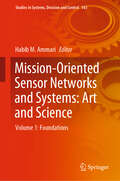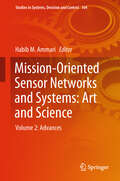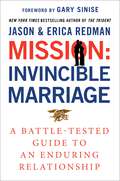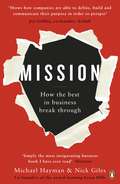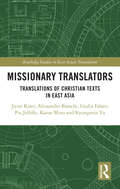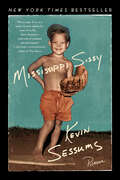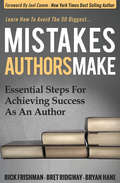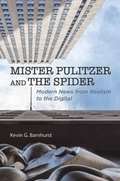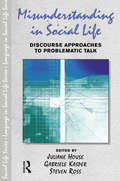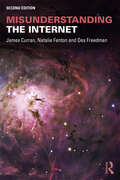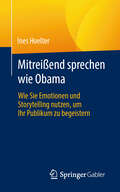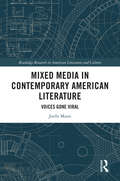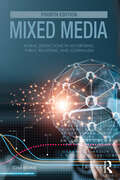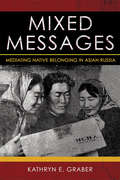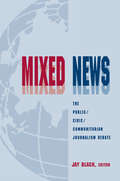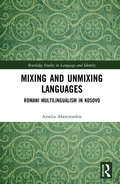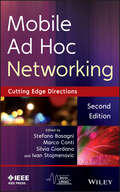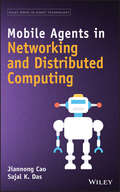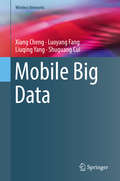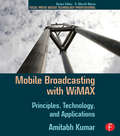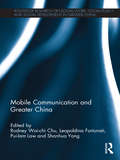- Table View
- List View
Missing Class
by Betsy Leondar-WrightMany activists worry about the same few problems in their groups: low turnout, inactive members, conflicting views on racism, overtalking, and offensive violations of group norms. But in searching for solutions to these predictable and intractable troubles, progressive social movement groups overlook class culture differences. In Missing Class, Betsy Leondar-Wright uses a class-focused lens to show that members with different class life experiences tend to approach these problems differently. This perspective enables readers to envision new solutions that draw on the strengths of all class cultures to form the basis of stronger cross-class and multiracial movements. The first comprehensive empirical study of US activist class cultures, Missing Class looks at class dynamics in 25 groups that span the gamut of social movement organizations in the United States today, including the labor movement, grassroots community organizing, and groups working on global causes in the anarchist and progressive traditions. Leondar-Wright applies Pierre Bourdieu's theories of cultural capital and habitus to four class trajectories: lifelong working-class and poor; lifelong professional middle class; voluntarily downwardly mobile; and upwardly mobile. Compellingly written for both activists and social scientists, this book describes class differences in paths to activism, attitudes toward leadership, methods of conflict resolution, ways of using language, diversity practices, use of humor, methods of recruiting, and group process preferences. Too often, we miss class. Missing Class makes a persuasive case that seeing class culture differences could enable activists to strengthen their own groups and build more durable cross-class alliances for social justice.
Missing Each Other: How to Cultivate Meaningful Connections
by Edward Brodkin Ashley PallathraThe ability to connect with another person and truly be in tune with their physical and emotional state is one of the most elusive interpersonal skills to develop. This book shows you how.In our fast-paced, tech-obsessed lives, rarely do we pay genuine, close attention to one another. With all that&’s going on in the world and the never-ending demands of our daily lives, most of us are too stressed and preoccupied to be able to really listen to each other. Often, we misunderstand or talk past each other. Many of us are left wishing that the people in our lives could really listen, understand, and genuinely connect with us.Based on cutting-edge neuroscience research and years of clinical work, psychiatrist Edward Brodkin and therapist Ashley Pallathra take us on a wide-ranging and surprising journey through fields as diverse as social neuroscience and autism research, music performance, pro basketball, and tai chi. They use these stories to introduce the four pillars of human connection: Relaxed Awareness, Listening, Understanding, and Mutual Responsiveness. Accessible and engaging, Missing Each Other explains the science, research, and biology underlying these pillars of human connection and provides exercises through which readers can improve their own skills and abilities in each.
Missing Each Other: How to Cultivate Meaningful Connections
by Edward Brodkin Ashley PallathraIn our fast-paced, tech-obsessed lives, rarely do we pay genuine, close attention to one another. With all that's going on in the world, and the never-ending demands of our daily lives, most of us are too stressed and preoccupied with our own thoughts and worries to be able to really listen to each other for long. Often, we seem to somehow "miss" each other, misunderstand each other, or talk past each other. Our ability to tune in to ourselves and to others seems to be withering. Many of us are left wishing for someone who could really listen, understand, and genuinely connect with us.In Missing Each Other, researchers and clinicians Edward Brodkin and Ashley Pallathra argue that we must find the ability to be in tune with each other again, and they show us how. Based on years of research that they conducted together in a National Institutes of Mental Health-funded clinical study, the authors take a wide-ranging and surprising journey through fields as diverse as social neuroscience and autism research, music performance, pro basketball, and tai chi. They use these stories to introduce the four principal components of attunement: Relaxed Awareness, Listening, Understanding, and Mutual Responsiveness. They outline the science, research, and biology underlying these pillars of human connection, but also providing readers with exercises through which they can improve their own skills and abilities in each.
Mission-Critical Application Driven Intelligent Maritime Networks (SpringerBriefs in Computer Science)
by Tingting Yang Xuemin (Sherman) ShenThis book shares valuable insights into high-efficiency data transmission scheduling and into a group intelligent search and rescue approach for artificial intelligence (AI)-powered maritime networks. Its goal is to highlight major research directions and topics that are critical for those who are interested in maritime communication networks, equipping them to carry out further research in this field.The authors begin with a historical overview and address the marine business, emerging technologies, and the shortcomings of current network architectures (coverage, connectivity, reliability, etc.). In turn, they introduce a heterogeneous space/air/sea/ground maritime communication network architecture and investigate the transmission scheduling problem in maritime communication networks, together with solutions based on deep reinforcement learning. To accommodate the computation demands of maritime communication services, the authors propose a multi-vessel offloading algorithm for maritime mobile edge computing networks. In closing, they discuss the applications of swarm intelligence in maritime search and rescue.
Mission-Oriented Sensor Networks and Systems: Volume 1: Foundations (Studies in Systems, Decision and Control #163)
by Habib M. AmmariThis book discusses topics in mission-oriented sensor networks and systems research and practice, enabling readers to understand the major technical and application challenges of these networks, with respect to their architectures, protocols, algorithms, and application design. It also presents novel theoretical and practical ideas, which have led to the development of solid foundations for the design, analysis, and implementation of energy-efficient, reliable, and secure mission-oriented sensor network applications. Covering various topics, including sensor node architecture, sensor deployment, mobile coverage, mission assignment, detection, localization, tracking, data dissemination, data fusion, topology control, geometric routing, location privacy, secure communication, and cryptograph, it is a valuable resource for computer scientists, researchers, and practitioners in academia and industry.
Mission-Oriented Sensor Networks and Systems: Volume 2: Advances (Studies in Systems, Decision and Control #164)
by Habib M. AmmariThis book presents a broad range of deep-learning applications related to vision, natural language processing, gene expression, arbitrary object recognition, driverless cars, semantic image segmentation, deep visual residual abstraction, brain–computer interfaces, big data processing, hierarchical deep learning networks as game-playing artefacts using regret matching, and building GPU-accelerated deep learning frameworks. Deep learning, an advanced level of machine learning technique that combines class of learning algorithms with the use of many layers of nonlinear units, has gained considerable attention in recent times. Unlike other books on the market, this volume addresses the challenges of deep learning implementation, computation time, and the complexity of reasoning and modeling different type of data. As such, it is a valuable and comprehensive resource for engineers, researchers, graduate students and Ph.D. scholars.
Mission: A Battle-Tested Guide to an Enduring Relationship
by Jason Redman Erica RedmanFrom Jason Redman, the former Navy SEAL and New York Times bestselling author of The Trident, writing with his wife, Erica, a battle-tested guide to marital bliss, drawing on the lessons of elite warriors to build a winning relationship, no matter the challenges and traumas that life sends your way. Featuring a foreword by Gary Sinise.The divorce rate among Navy SEALs is over 90 percent, and the rate among severely wounded warriors is even higher. Erica and Jason Redman knew their marriage faced an uphill climb, because Jason is both.In 2007, Jason’s patrol was ambushed by a machine gunners’ nest in Iraq. Thirty-seven surgeries, 1,200 stitches, and a grueling years-long rehab would follow. Despite all that—plus the daily demands of raising three children and running a successful business together—Jason and Erica’s marriage has remained invincible.Every day, you make choices that either build up your relationship or leave it exposed and vulnerable to attack. The highest-performing warrior teams pay attention to developing muscle-memory habits, and your marriage can benefit from the same focus.In Mission: Invincible Marriage, Jason and Erica share the tools they use to lay the foundational beliefs and communication skills a marriage needs to last for life. Each chapter helps readers develop a key tenet of successful relationship-building. Among them:Commit to Friendship: The foundation of all successful marriages is genuine friendshipSupport Each Other’s Dreams: Couples who establish a pattern of supporting each other’s dreams can thrive even when those dreams grow and changeKnow When to Give Space: Learn to trust each other enough to give and take space when needed instead of resorting to passive-aggressive responses and stonewallingEstablish Rituals: Couples can strengthen their marriage by finding ways to invest in small shared actions that reflect and reinforce commitmentFace Conflict Together: Marital strength is not the absence of conflict but the ability to withstand and work through conflictDrawing on their own experiences and the latest research in long-term interpersonal relationships, Mission: Invincible Marriage is a battle-tested guide to nurturing love, especially when the going gets tough.
Mission: How the Best in Business Break Through
by Michael Hayman Nick GilesIn Mission: How the Best in Business Break Through, Michael Hayman and Nick Giles show companies how to join the ranks of today's business winners.Business as usual is over. Belief is the new currency and to succeed you must follow new rules: purpose as the route to profit; mind share to gain market share.The best in business are defined by mission: a singular cause, a defining ambition. They stand out as campaigners, activists fighting to lead industries and redefine them. And they win through with momentum, explosive growth that outruns the competition.From tech pioneers Google and Airbnb, to retail giant Whole Foods and British success stories such as Ella's Kitchen, Mission shows how business is changing people's lives through the power of purpose, culture and campaigning. How caring, sharing and daring companies have opened a new chapter for the world of business.Uncover the secrets of what it takes to succeed: how to discover and define your commercial purpose, hone it into a campaign and turn customers into advocates. Harness the power of momentum. Find your mission.
Missionary Translators: Translations of Christian Texts in East Asia
by Jieun Kiaer Pia Jolliffe Alessandro Bianchi Giulia Falato Kazue Mino Kyungmin YuExploring the history of missionary translation of Christian texts in East Asia, Missionary Translators offers a comparative perspective between the features of East Asian languages and the historical context of the translation. Focusing on the Bible and Christian theological works, it looks at the intersection of linguistics, translation studies, and history. This book discusses the real-life challenges faced by missionary translators in producing Christian texts in East Asian languages. Students, historians, scholars and those interested in the study of East Asian cultures or translation will find this book to be an insightful and invaluable resource.
Mississippi Sissy
by Kevin Sessums“A book I’ve been waiting for most of my life . . . by a writer who is equally at home with Flannery O’Connor and Jacqueline Susann.” —Michael Cunningham, Pulitzer Prize–winning author Mississippi Sissy is the stunning memoir from Kevin Sessums, a celebrity journalist who grew up scaring other children, hiding terrible secrets, pretending to be Arlene Frances and running wild in the South.As he grew up in Forest, Mississippi, befriended by the family maid, Mattie May, he became a young man who turned the word “sissy” on its head, just as his mother taught him. In Jackson, he is befriended by Eudora Welty and journalist Frank Hains, but when Hains is brutally murdered in his antebellum mansion, Kevin’s long road north towards celebrity begins. In his memoir, Kevin Sessums brings to life the pungent American south of the 1960s and the world of the strange little boy who grew there.“Mississippi Sissy is an unforgettable memoir. I think it will strike a strong chord with many, many readers. It’s a far different book than Midnight in the Garden of Good and Evil, but it cast the same kind of spell over me while I was reading it.” —Mark Childress, author of Georgia Bottoms“What a writer! What honesty! Kevin Sessums seamlessly weaves his heart-breaking, funny, outrageous, can’t-put-it-down story. Read it! Read it! Read it! Then read it again.” —Ellen DeGeneres“Kevin Sessums is a brilliant writer. He is also a courageous one. Mississippi Sissy is beautifully told—hilarious yet harrowing, tragic yet inspiring. This book will deeply touch anyone who has ever felt different, which means every single one of us.” —E. Lynn Harris, New York Times–bestselling author
Mistakes Authors Make: Essential Steps for Achieving Success as an Author
by Rick Frishman Bret Ridgway Bryan Hane&“Features 50 of the most common errors book authors make in writing, publishing, and promoting their books.&” —John Kremer, author of 1001 Ways to Market Your Books The publishing landscape can be a tricky one to navigate. There are so many aspects to authoring and publishing a book that it&’s easy for you to make critical mistakes that can set you off course and significantly decrease your chances for success. How many of the 50 biggest author mistakes are you making? When you learn to avoid them, you can greatly enhance your chances for success in the publishing world. In this insider&’s look at the worlds of publishing and book marketing coauthors Rick Frishman, Bret Ridgway, and Bryan Hane bring their 65 combined years of experience in the publishing world to you and share their secrets to success. You&’ll learn: How to master media and other key marketing channels authors should useKeys to capturing the browsing buyer in bookstores and onlineThe new publishing landscape and how it impacts youHow to increase the readability of your book so readers keep coming backHow your book is the key piece of your own information marketing empireAnd much, much more &“If you want to write a book or make sure that your book is a smashing success read this now and take action! You&’ll be amazed at the difference it will make in your success!&” —John Assaraf, New York Times–bestselling author of Innercise and The Answer &“I LOVE the book so far! Clear-concise-comprehensive with practical info the aspiring author needs!&” —Laura Venecia Rodriguez, author of Yoga at Home
Mister Pulitzer and the Spider: Modern News from Realism to the Digital
by Kevin G BarnhurstA spidery network of mobile online media has supposedly changed people, places, time, and their meanings. A prime case is the news. Digital webs seem to have trapped "legacy media," killing off newspapers and journalists' jobs. Did news businesses and careers fall prey to the digital "Spider"? To solve the mystery, Kevin Barnhurst spent thirty years studying news going back to the realism of the 1800s. The usual suspects--technology, business competition, and the pursuit of scoops--are only partly to blame for the fate of news. The main culprit is modernism from the "Mister Pulitzer" era, which transformed news into an ideology called "journalism." News is no longer what audiences or experts imagine. Stories have grown much longer over the past century and now include fewer events, locations, and human beings. Background and context rule instead. News producers adopted modernism to explain the world without recognizing how modernist ideas influence the knowledge they produce. When webs of networked connectivity sparked a resurgence in realist stories, legacy news stuck to big-picture analysis that can alienate audience members accustomed to digital briefs.
Misunderstanding in Social Life: Discourse Approaches to Problematic Talk (Language In Social Life)
by Gabriele Kasper Juliane House Steven RossMisunderstanding is a pervasive phenomenon in social life, sometimes with serious consequences for people's life chances. Misunderstandings are especially hazardous in high-stakes events such as job interviews or in the legal system. In unequal power encounters, unsuccessful communication is regularly attributed to the less powerful participant, especially when those participants are members of an ethnic minority group. But even when communicative events are not prestructured by participants' differential positions in social hierarchies, misunderstandings occur at different levels of interactional and social engagement. Misunderstanding in Social Life examines such problematic talk in ordinary conversation and different institutional settings, including socializing events and story tellings, education and assessment activities, and interviews in TV news broadcasts, employment agencies, legal settings, and language testing. The analyzed interactions are located in a variety of sociocultural environments and conducted in a range of languages, including English, French, German, Hebrew, Japanese, such language varieties as Aboriginal Australian English and Maori New Zealand English, and nonnative varieties. The original studies included in this volume adopt a variety of theoretical perspectives, including discourse-pragmatic approaches, conversation analysis, interactional sociolinguistics, social constructionism, tropological and narrative analysis. They represent multiple views of misunderstanding as a multilayered discourse event.
Misunderstanding the Internet (Communication and Society)
by James Curran Des Freedman Natalie FentonThe growth of the internet has been spectacular. There are now more than 3 billion internet users across the globe, some 40 per cent of the world’s population. The internet’s meteoric rise is a phenomenon of enormous significance for the economic, political and social life of contemporary societies. However, much popular and academic writing about the internet continues to take a celebratory view, assuming that the internet’s potential will be realised in essentially positive and transformative ways. This was especially true in the euphoric moment of the mid-1990s, when many commentators wrote about the internet with awe and wonderment. While this moment may be over, its underlying technocentrism – the belief that technology determines outcomes – lingers on and, with it, a failure to understand the internet in its social, economic and political contexts. Misunderstanding the Internet is a short introduction, encompassing the history, sociology, politics and economics of the internet and its impact on society. This expanded and updated second edition is a polemical, sociologically and historically informed guide to the key claims that have been made about the online world. It aims to challenge both popular myths and existing academic orthodoxies that surround the internet.
Mitreißend sprechen wie Obama: Wie Sie Emotionen und Storytelling nutzen, um Ihr Publikum zu begeistern
by Inés HoelterDieses Buch zeigt, wie Sie im Beruf authentisch sprechen und Menschen überzeugen – gerade dann, wenn es wirklich drauf ankommt. Inés Hoelter, renommierte Sprechtrainerin und Medienprofi, beschreibt anschaulich, wie durch Sprechduktus und die begleitende Gestik Emotionen erzeugt werden, die ZuhörerInnen mitreißen. Vom klassischen Aufbau einer guten Rede bis hin zur Bedeutung von Storytelling und der Heldenreise lernen Sie die Basics der perfekten Perfomance kennen. Darüber hinaus erläutert die Autorin anhand neurowissenschaftlicher Erkenntnisse, warum bestimmte Taktiken besser wirken als andere und warum manche Reden in den Köpfen der Zuhörer besonders lange nachhallen. Ein Muss für alle, die mit ihrer Performance im Konferenzraum oder auf der Bühne in die nächste Liga aufsteigen wollen.
Mixed Media in Contemporary American Literature: Voices Gone Viral (Routledge Research in American Literature and Culture)
by Joelle MannMixed Media in Contemporary American Literature: Voices Gone Viral investigates the formation and formulation of the contemporary novel through a historical analysis of voice studies and media studies. After situating research through voices of nineteenth- and twentieth-century American literature, this book examines the expressions of a multi-media vocality, examining the interactions among cultural polemics, aesthetic forms, and changing media in the twenty-first century. The novel studies shown here trace the ways in which the viral aesthetics of the contemporary novel move language out of context, recontextualizing human testimony by galvanizing mixed media forms that shape contemporary literature in our age of networks. Through readings of American authors such as Claudia Rankine, David Foster Wallace, Jennifer Egan, Junot Díaz, Michael Chabon, Joseph O’Neill, Michael Cunningham, and Colum McCann, the book considers how voice acts as a site where identities combine, conform, and are questioned relationally. By listening to and tracing the spoken and unspoken voices of the novel, the author identifies a politics of listening and speaking in our mediated, informational society.
Mixed Media: Moral Distinctions in Advertising, Public Relations, and Journalism
by Tom Bivins Thomas BivinsMixed Media offers students of journalism, advertising, and public relations the tools for making ethical and moral decisions within their professional disciplines. The fourth edition of this popular text features more recent ethical theories that acknowledge and address intersectionality within the communicative landscape, including issues of gender, race, ability, and age. The author also takes into account today’s rapidly expanding technology, touching on subjects such as free speech, censorship, cancel culture, and misinformation, and considers how each of these is affected by online and social media. Other updates to the text include expanded coverage of citizen journalism, the increasing media use of artificial intelligence and virtual reality, power in communicative structures, and public interest, as well as refreshed examples throughout. As in previous editions of the book, special attention is paid to key ethical decision-making approaches and concerns in each media industry, including but not limited to truth telling, constituent obligations, persuasion versus advocacy, and respect for the consumers of public communication. Mixed Media is key reading for students of all branches of Media and Communication Ethics. The author's own website, featuring lecture notes, case studies and links to further reading, can be accessed at www.j397mediaethics.weebly.com.
Mixed Messages: Mediating Native Belonging in Asian Russia
by Kathryn E. GraberFocusing on language and media in Asian Russia, particularly in Buryat territories, Mixed Messages engages debates about the role of minority media in society, alternative visions of modernity, and the impact of media on everyday language use. Graber demonstrates that language and the production, circulation, and consumption of media are practices by which residents of the region perform and negotiate competing possible identities. What languages should be used in newspapers, magazines, or radio and television broadcasts? Who should produce them? What kinds of publics are and are not possible through media? How exactly do discourses move into, out of, and through the media to affect everyday social practices? Mixed Messages addresses these questions through a rich ethnography of the Russian Federation's Buryat territories, a multilingual and multiethnic region on the Mongolian border with a complex relationship to both Europe and Asia.Mixed Messages shows that belonging in Asian Russia is a dynamic process that one cannot capture analytically by using straightforward categories of ethnolinguistic identity.
Mixed News: The Public/civic/communitarian Journalism Debate (Routledge Communication Series)
by Jay BlackThis volume addresses some of the central issues of journalism today -- the nature and needs of the individual versus the nature and needs of the broader society; theories of communitarianism versus Enlightenment liberalism; independence versus interdependence (vs. co-dependency); negative versus positive freedoms; Constitutional mandates versus marketplace mandates; universal ethical issues versus situational and/or professional values; traditional values versus information age values; ethics of management versus ethics of worker bees; commitment and compassion versus detachment and professional "distance;" conflicts of interest versus conflicted disinterest; and "talking to" versus "talking with." All of these issues are discussed within the framework of the frenetic field of daily journalism--a field that operates at a pace and under a set of professional standards that all but preclude careful, systematic examinations of its own rituals and practices. The explorations presented here not only advance the enterprise, but also help student and professional observers to work through some of the most perplexing dilemmas to have faced the news media and public in recent times. This lively volume showcases the differing opinions of journalistic experts on this significant contemporary issue in public life. Unlike previous books and monographs which have tended toward unbridled enthusiasm about public journalism, and trade press articles which have tended toward pessimism, this book offers strong voices on several sides of this complex debate. To help inform the debate, a series of "voices"--journalistic interviews with practitioners and critics of public journalism -- is interspersed throughout the text. At the end of each essay, a series of quotes from a wide variety of sources -- "In other words..." -- augments each chapter with ideas and insights that support and contradict the points used by each chapter author.
Mixing and Unmixing Languages: Romani Multilingualism in Kosovo (Routledge Studies in Language and Identity)
by Amelia AbercrombieMixing and Unmixing Languages uses the politics and practices of language to understand social hierarchies and social change in a post-conflict and post-socialist context. The book focuses on Roma in Prizren, Kosovo, where the author conducted long-term ethnographic fieldwork, using language learning as a central method. Shifts in language practices among this highly multilingual group have reflected the demise of Yugoslav socialism, the rise of ethno-nationalist politics and conflict, and the post-war reversal of power relations in Kosovo. Roma in Prizren nostalgically narrate a past of cosmopolitanism and employment in contrast to the present. Their position today is complex: while they stress their relative integration, this position is fragile in the face of nationalist politics and imported neoliberal economic policies. Within this context, Roma NGO workers have found an economic niche working on projects to protect multiculturalism and minorities, funded by international aid agencies, centred on Romani language. This book discusses the historical trajectory and current configurations of a Romani organisation in the town, the standardisation of Romani and the hierarchical organisation of linguistic forms and language learning, the self-representation of Roma and the ‘gypsy’ image through Romani-language drama, and attitudes to purism, mixing and cosmopolitanism. Mixing and Unmixing Languages is suitable for academics and students in the areas of linguistic anthropology and linguistic ethnography, Romani studies, South-East European studies and sociolinguistics.
Mobile Ad Hoc Networking
by Ivan Stojmenovic Marco Conti Stefano Basagni Silvia Giordano"An excellent book for those who are interested in learning the current status of research and development . . . [and] who want to get a comprehensive overview of the current state-of-the-art."--E-StreamsThis book provides up-to-date information on research and development in the rapidly growing area of networks based on the multihop ad hoc networking paradigm. It reviews all classes of networks that have successfully adopted this paradigm, pointing out how they penetrated the mass market and sparked breakthrough research.Covering both physical issues and applications, Mobile Ad Hoc Networking: Cutting Edge Directions offers useful tools for professionals and researchers in diverse areas wishing tolearn about the latest trends in sensor, actuator, and robot networking, mesh networks, delay tolerant and opportunistic networking, and vehicular networks.Chapter coverage includes:Multihop ad hoc networkingEnabling technologies and standards for mobile multihop wireless networkingResource optimization in multiradio multichannel wireless mesh networksQoS in mesh networksRouting and data dissemination in opportunistic networksTask farming in crowd computingMobility models, topology, and simulations in VANETMAC protocols for VANETWireless sensor networks with energy harvesting nodesRobot-assisted wireless sensor networks: recent applications and future challengesAdvances in underwater acoustic networkingSecurity in wireless ad hoc networksMobile Ad Hoc Networking will appeal to researchers, developers, and students interested in computer science, electrical engineering, and telecommunications.
Mobile Agents in Networking and Distributed Computing
by Sajal K. Das Jiannong CaoThe book focuses on mobile agents, which are computer programs that can autonomously migrate between network sites. This text introduces the concepts and principles of mobile agents, provides an overview of mobile agent technology, and focuses on applications in networking and distributed computing.
Mobile Big Data (Wireless Networks)
by Shuguang Cui Liuqing Yang Xiang Cheng Luoyang FangThis book provides a comprehensive picture of mobile big data starting from data sources to mobile data driven applications. Mobile Big Data comprises two main components: an overview of mobile big data, and the case studies based on real-world data recently collected by one of the largest mobile network carriers in China. In the first component, four areas of mobile big data life cycle are surveyed: data source and collection, transmission, computing platform and applications. In the second component, two case studies are provided, based on the signaling data collected in the cellular core network in terms of subscriber privacy evaluation and demand forecasting for network management. These cases respectively give a vivid demonstration of what mobile big data looks like, and how it can be analyzed and mined to generate useful and meaningful information and knowledge. This book targets researchers, practitioners and professors relevant to this field. Advanced-level students studying computer science and electrical engineering will also be interested in this book as supplemental reading.
Mobile Broadcasting with WiMAX: Principles, Technology, and Applications (Focal Press Media Technology Professional Ser.)
by Amitabh KumarWritten exclusively from broadcasters perspective, Mobile Broadcasting with WiMAX will help you move ahead in the use of WiMAX technologies. Whether you are an engineer, content provider, manager, or operator and planning such services, this book helps you understand the dimensions of this new medium and integration of communication, broadcasting and Multimedia technologies. The book oulines migrating to a new generation of broadcasting which integrates the Mobile, Wireless and Fixed network domains, then gives you a complete picture on what is happening in the field.The book is divided into five parts as follows:PART I Gives an introduction to Broadband Wireless Technologies and Mobile WiMAX. Wi-Fi including 802.11a,b,n and g, WiMAX technologies with focus on Mobile WiMAX 802.16e, and provides a global overview of deployment of Wireless broadband networks.PART-II is about Mobile Multimedia broadcasting and Mobile TV technologies, based on both cellular and broadband wireless. PART III covers Resources for Mobile multimedia broadcasting and comprises of four structured chapters on Spectrum for WiMAX networks, WiMAX terrestrial broadcasting networks, client devices for WiMAX and an update of on chipsets developments. Part IV is devoted to the Network Architectures and the integration of WiMAX with other networks, both fixed and mobile. Part V deals with Software architectures and Applications which help the process of mobile multimedia broadcasting. Case studies of prominent networks are given with country specific examples.
Mobile Communication and Greater China (Routledge Research on Social Work, Social Policy and Social Development in Greater China)
by Pui-Lam Law Leopoldina Fortunati Rodney Wai-chi Chu Shanhua YangThis edited volume is the first book-length study focusing entirely on mobile phone use in China. Drawing on examples from a wide range of contemporary situations in China and beyond, the contributors argue that the mobile phone is in fact an important means by which one can understand a rapidly changing China, and the developing culture of mobile phone usage reflects both the cultural norms and struggle of the people. Through a theoretical comparison of usage in the West and in China, the editors assert the uniqueness of China’s experience, highlighting that Chinese society is being exposed simultaneously to a rapid process of industrialization and cyberization. The contributors maintain that such density of experience under a compressed period combined with a thick cultural heritage and a country still under a dictating rule provides a unique situation and offers deep insights into Chinese culture in general. This work will be of great interest to all students and scholars of Asian communication studies, ICT and Chinese culture and society.
